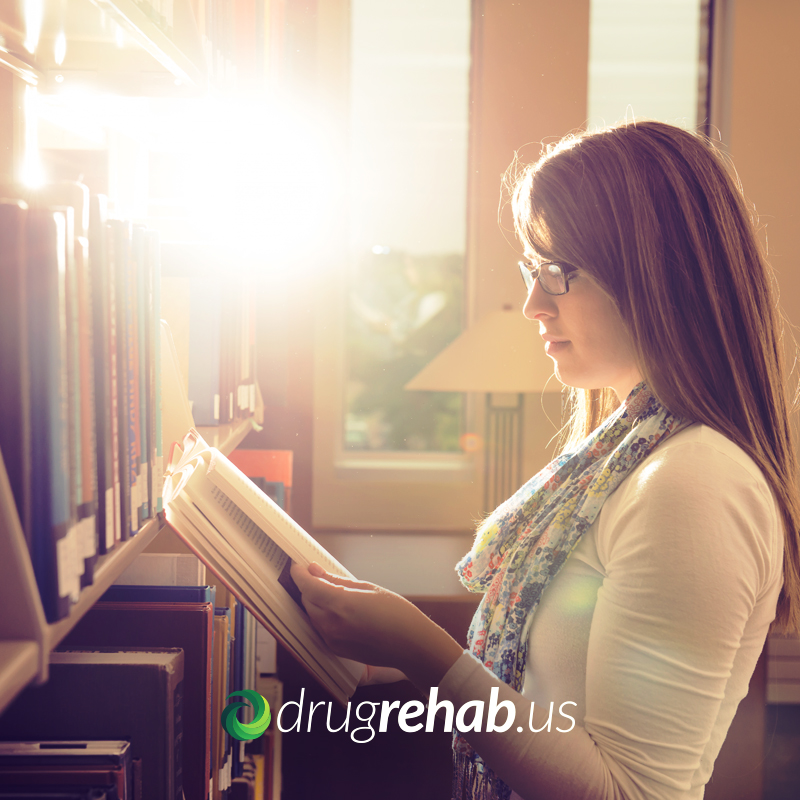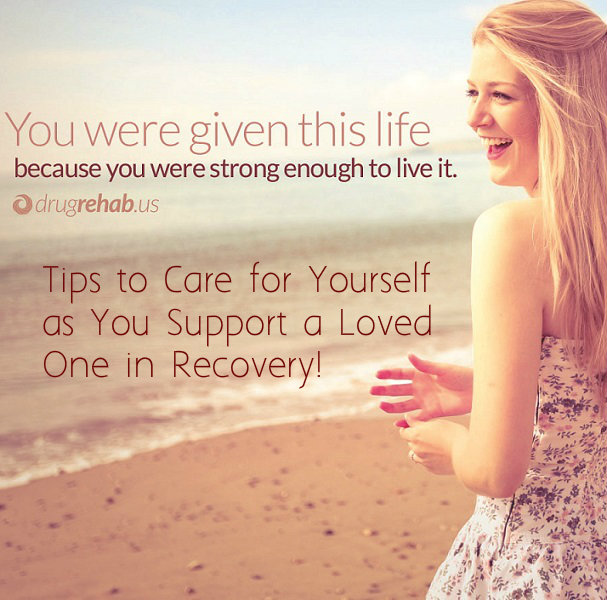06 Jul 2015
Sending Your Addicted Teen To College
Sending your child off to college can be a stressful period. This is probably the first time she has been away for longer than a stint at summer camp. There are also both realistic and symbolic transitions. She is becoming an independent adult by going off to school without you. She will be on her own to go through the academic and social experiences of college life, as well as the challenges. If your teen has struggled with substance abuse the stakes are higher than normal.
Addicted Teens
For some adults, it may seem unlikely that a young person going off to college could already be an addict. The scary truth is that teens do become addicted. The earlier they experiment with drugs or alcohol, the more likely they are to get hooked.
According to surveys, among college students participating in recovery programs on campus, the average age at which they first became addicted was 15. Common addictions in teens are to alcohol, marijuana and prescription drugs.
What To Do When Sending Your Addicted Teen To College
The following are several tips to help give your addicted teen the best shot when sending them to college and to help ease your concerns.
Check Out The Party Schools
You may be tempted to insist that your teen stay home and go to community college, and that might be the best choice. But if you both feel she is ready for the campus experience, make your selection carefully. You can easily find rankings of the biggest party schools in the U.S. These are best avoided.
In fact, you can find rankings that show you the opposite: the most sober schools. Brigham Young University, the Mormon-associated school in Utah, regularly tops this list. There are plenty of choices in schools that pride themselves on taking a sober stance. Of course, attending such a school cannot guarantee your child will stay sober, but it can help.
Look For Sober Living Opportunities
Regardless of which college your teen chooses, investigate their living arrangements. Many colleges now offer dorms or other types of housing for students who want to be sober. In these dorms your teen will live with other students who are in recovery from substance abuse. The support system built into this type of living arrangement can be a powerful way to resist the urge to party. Living in a dorm with students that are drinking and even using drugs may be more temptation than she can handle.
Continue With Treatment
Not all college campuses will have treatment programs for addicted students, but you can set up private therapy sessions to make sure your teen has the chance to keep up with her treatment. You can also help her look for support group meetings that she can attend. She may feel strong in her sobriety going into college, but the stresses and anxiety that come with such a major life transition may send her into a tailspin. Make sure she has support and treatment options ready in case she feels she needs them.
Also be sure that your teen has access to mental health services. Many addicted students struggle with depression and anxiety as well as other mental health issues. Check with the college’s on-campus health center to see what kinds of programs they have available, including emergency mental health services.
As you gather all of this information, be sure to keep your teen in the loop. Make her a part of her own sobriety so that she can take ownership and responsibility. You can’t be there with her forever. You have to let her go and give her a chance to be independent, but you can adequately prepare her to be successful.
Read Our Other Posts On What Parents Need To Know
11 Jun 2015
How Your Parent’s Substance Abuse Affected You
If you grew up with one or more parents abusing drugs or drinking too much, you probably have some bad memories. Whether you like to spend much time reflecting on it or not, your parent’s substance abuse affected you in negative ways. It hurts to think about it, but when you start to wrap your head around what happened you can finally learn how to forgive an alcoholic parent and move on with your life as a happy and well-adjusted adult.

Ways Your Parent’s Substance Abuse Affected You
The following are just several ways that your parent’s substance abuse may have affected you.
You Didn’t Learn How To Communicate
You might think that because your parents were not abusive and because they didn’t neglect you in any serious way, they didn’t harm you. But what you learn from your parents is more complicated and subtle. Abuse and neglect are traumatic experiences, but they are not the only ways in which parents with substance use and abuse disorders harm their kids. For instance, communication in the household probably suffered. Communication in houses with substance abuse tends to be negative and limited. Without good modeling for how to communicate with people you care about, you may not be good at it as an adult.
You Learned To Self-Medicate
You missed out on the modeling of certain positive behaviors, like communication, mentioned above. Your parents probably also showed you some negative behaviors, and you may have followed their example. Many people who drink too much or abuse drugs do so as way to self-medicate. It’s a way to push down emotions, relieve stress or ignore the uncomfortable symptoms of untreated mental illness. You learned an unhealthy strategy from your parents when they should have been showing you healthy ways to mitigate stress and to cope with bad feelings.
You Grew Up Too Soon
Many children with alcoholic or addicted parents are forced to be more responsible than they should have to be. You were also forced to face situations, conflicts and emotions beyond your years. Of all the effects of parental drug abuse on children, this is the most unfair. Children are supposed to be children and not have to worry about adult problems. In a way, being forced to grow up quickly is a sort of trauma. Maybe you weren’t physically abused and maybe you always had enough to eat, but you were forced to face adult issues at such a young age.
These are just a few ways that your parent’s substance abuse has affected your life, both when you were young and as an adult. When you learn to face and work through these issues, you can start to let go of anger and resentment. Repairing love after drug addiction or alcoholism isn’t easy, but it allows you to mitigate the negative effects and learn to be a healthier and happier adult.
You Can Do It – We Believe In You – For Help, Call One Of Our Counselors Now!
You just started seeing this great guy. You went on a few dates, and they were some of the best dates you’ve ever experienced. You’re thinking this could be serious. This could be the real deal. And then he drops the bombshell: he’s a recovering addict. Do you run away or do you take a chance on this guy who seems so wonderful?
Things You Need To Know To Date A Recovering Addict
Before you make a choice to continue or break it off, there are some important things you need to know.
Recovering Addicts Can Be Great Partners
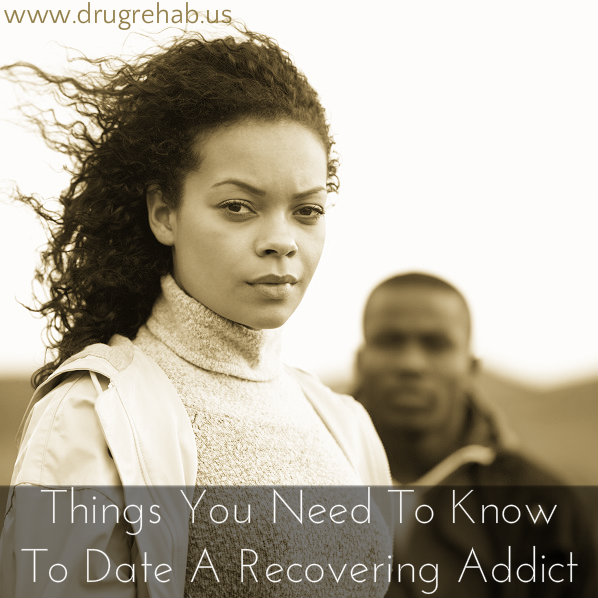 If your mind is flooding with negative thoughts and all the possible things that could go wrong in dating a recovering addict, you haven’t considered one thing: recovering addicts have been through intensive therapy. They have learned important skills for having healthy relationships, like how to communicate effectively and how to cope with stress in positive ways. Addicts in recovery have committed to sobriety and to being honest. These aren’t terrible traits to have in a partner.
If your mind is flooding with negative thoughts and all the possible things that could go wrong in dating a recovering addict, you haven’t considered one thing: recovering addicts have been through intensive therapy. They have learned important skills for having healthy relationships, like how to communicate effectively and how to cope with stress in positive ways. Addicts in recovery have committed to sobriety and to being honest. These aren’t terrible traits to have in a partner.
Addicts In Recovery Relapse
No matter how strong the commitment to sobriety, addicts in recovery are likely to relapse at least once. It’s important that you understand addiction is a chronic disease, which means that relapse is possible. Be realistic about this fact and decide if you are prepared and willing to help your partner through a difficult time. Will you be ready to support him after a relapse? Will you be able to cope with seeing him under the influence?
A Recovering Addict’s Past Is Shady
So your new guy dropped the bomb that he is an addict in recovery. That is likely to be the first of a few bombshells. He gave you the big one, and he probably won’t give you all the other details of his past right away. You will need time to process and get ready for the next. Many addicts have shameful things in their pasts. He was dependent on drugs, and he may have done other things he now regrets. Be prepared to hear that he hurt people, that he has a criminal record or that he did other bad things. Then remember that the past is in the past. He can’t change the past, but he can make amends.
Recovering Addicts Require More Support
In any relationship you need to support your partner. Your recovering addict will need more support than most partners would. He may need you to refrain from drinking around him. He may not be able to go to parties without you by his side. You may need to make allowances for him to go to meetings or therapy when you would rather do something else. Doing these things means supporting him in his sobriety. He needs this extra support to have a strong sobriety and to avoid relapse. Be prepared to give and to be more sensitive.
Love Isn’t Always Enough
Perhaps the most difficult lesson about addiction and dating is that love really doesn’t conquer all. You may fall hard for this guy and be prepared to take on his past and his recovery, but your relationship might still fail. Maybe he will relapse and become a different person, stealing from you or getting violent. Maybe you will find that the level of support he needs is more than you can give. If you are prepared for all of these possibilities, then you may be ready to start dating an addict in recovery. Remember to take care of yourself and not to lose who you are in the process of being with a recovering addict.
Are You Enabling Your Partner’s Addiction? – Learn The Signs Of Enabling & How To Stop!
16 Feb 2015
Drug-Testing Your Teen – Can You And Should You?
Drug use is a big problem among young people today. They have more access than ever before and as a parent you have reason to worry. No teen is immune to the pressure to use drugs, not even the star athletes or the academic achievers. Doing your best to prevent your child from abusing drugs is important. You have a big influence over him and the choices he makes. Should your preventative measures include drug tests? There are plenty of drug tests on the market and you can do home tests or have your child tested at your doctor’s office.
The Dangers Of Drug Use In Teens
As a responsible parent you should be concerned about drug use, even if you feel like your teen would never make that choice. Teens face a lot of pressures and many turn to drugs, even the ones you would never suspect of doing so.
 And the dangers of using drugs are great for young people. They run the risk of developing a life-long habit. They may have accidents while under the influence and hurt or kill themselves or others. Drug use may lead to psychiatric problems, antisocial behaviors, and poor academic performance. With so many potential negative consequences, it might seem like drug testing is the only way to truly protect your child.
And the dangers of using drugs are great for young people. They run the risk of developing a life-long habit. They may have accidents while under the influence and hurt or kill themselves or others. Drug use may lead to psychiatric problems, antisocial behaviors, and poor academic performance. With so many potential negative consequences, it might seem like drug testing is the only way to truly protect your child.
Drug Testing: The Options
You can find home drug testing kits easily online or at a drugstore and most of them use urine to test for the presence of drugs. These home kits have some limitations, though. Most urine tests don’t detect all illegal drugs, including party drugs like LSD, ecstasy and ketamine. They also fail to detect inhalants, a common way that teens get high on household chemicals, steroids and alcohol. These tests are also imperfect in their accuracy. They can produce both false positive and false negative results. Your other option, which is likely to produce better results, is to have a test done by your pediatrician and analyzed in a lab.
Should I Drug Test My Teen?
Whether you choose to use drug testing as a preventative measure is personal. The American Academy of Pediatrics (AAP) strongly opposes using involuntary drug tests. In other words, if you choose to go this route, make sure your teen understands your reasoning and agrees to be tested. Forcing your teen to be tested for drugs can be damaging to your relationship.
The AAP also believes there are better ways to prevent drug use or to monitor a teen who is displaying signs of possible drug use. Start by talking to your child about drugs. Talk about how harmful they can be and how your teen can say no to friends who are using. Make it clear that you will not tolerate drug use and why. Talking openly is a powerful way to stay connected with your child and to influence the choices he makes.
One situation that may be more appropriate for drug testing is if you have a teen that has been through a treatment program for substance abuse. It may be an important part of his recovery to test him regularly. That way you can catch a relapse before it gets out of hand. If he is serious about his recovery, he should agree to the testing.
Drug use in teens is a scary situation to contemplate. Young people are vulnerable to peer pressure and they can suffer so much damage from drug use. Do your best to influence your teen’s choices and to monitor his behavior for signs of drug use. Just remember that you are not a police officer. You are a parent who cares about your child.
Afraid That Your Teen Is Abusing Drugs & Don’t Know What To Do?
Call Us Now – We Are Here To Help You!
09 Feb 2015
Are You Enabling Your Partner’s Addiction?
If your partner is using drugs or alcohol, there is a chance that you are enabling his habit. It may sound ridiculous at first. Why on earth would you want him to use? Why would you encourage him? The truth is that enabling is subtle, and you may be doing it in ways that even you don’t realize. Take the time to consider your role in the relationship and decide if you are an enabler or if you could be doing more to help him stop using.
What Is An Enabler?
An enabler is rarely overt. You’re probably not feeding your partner drugs or alcohol. You’re not likely to actively encourage him to go out and drink or to spend more money on drugs.
In most cases an enabler is someone who is more subtle. This is someone who takes away the consequences of drug or alcohol use so that the user doesn’t experience the full costs of his choices and behaviors. Enablers often believe that they are helping their loved ones, when in fact they are causing more harm. It is those consequences that should be an addict’s biggest motivation to stop using.
Signs Of Enabling
How can you tell if you are enabling your partner’s habit? Think about your actions and how you respond to his drug use or drinking. Consider whether the choices you make minimize the consequences he should be experiencing. Here are some concrete examples of what you might be doing if you are an enabler:
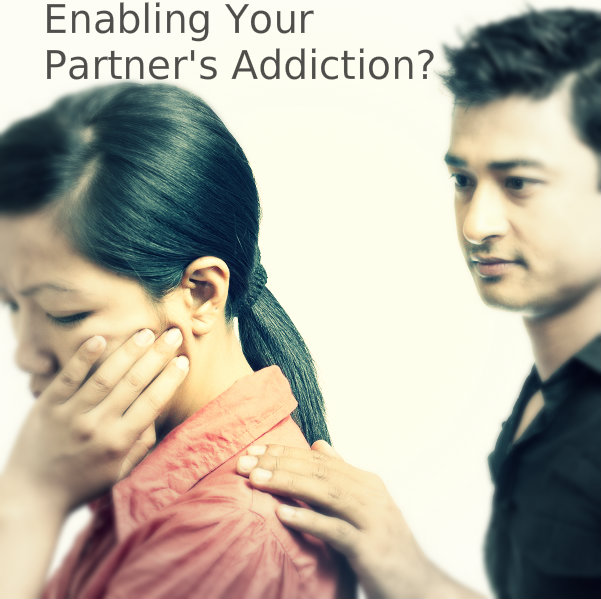 You give your partner money when he’s desperate. Money is the fuel for his addiction. If he runs out and you give him more, he will never experience the total loss of money caused by his habit.
You give your partner money when he’s desperate. Money is the fuel for his addiction. If he runs out and you give him more, he will never experience the total loss of money caused by his habit.
- You make excuses for him. When he misses appointments, days of work or school, or when he behaves inappropriately, there should be consequences. If you make excuses for him, he won’t feel the repercussions.
- You drive him wherever he needs to go. Whether he lies about it or not, chances are you are driving him to places where he uses or buys drugs.
- You help him when he gets into legal trouble. Legal problems are often a consequence of drug use or excessive drinking. If you help get him out of it, you’re enabling his habit.
- You keep quiet and don’t confront him about what worries you. Not talking to him about how often he passes out, how badly he behaves when high or drunk or how he is draining your bank account isn’t helping.
How To Stop Enabling And Start Helping
If you recognize yourself in the signs of enabling, you need to stop supporting your partner’s habit and start helping him get over it. Know that it isn’t easy to change your own behaviors, but it is crucial. Stop actively doing things that help him use, such as giving him money, transporting him, or making excuses when he messes up. He will be hurt, upset and even angry with you, but you have to remain strong in the face of his pushback.
Once you have made it clear that you will no longer be actively helping him use, sit your partner down for a frank talk and provide options for him to get help. If you are struggling with this or if you are afraid you’ll back down, enlist the help of other people who care about you and your partner. There is strength in numbers. It will be difficult, but if you are persistent your loved one will eventually feel the consequences of his habit and will have no choice but to make a change.
If You Need Help With Your Partner’s Addiction Or With Setting Up An Intervention – Call Us Now!
When you have a loved one battling addiction, especially if it is someone close to you, it is all too easy to get wrapped up in his problems and his needs. As you support him, stand by him and care for him, don’t forget to take care of yourself. Caretakers often lose sight of who they are and become stressed, overwhelmed and sometimes even physically ill from the strain of caring for someone else. Take time for your own needs while still supporting your loved one and you will stay healthy and sane and better able to care for him.
Tips For Caring For Yourself As You Support A Loved One In Recovery
Lending Support In Recovery – Make A Plan
What does healthy support look like? If you have never stood by someone through such a difficult period of healing and transition, and if you have never watched while someone else played the role of caregiver and supporter, you may not know what is appropriate. What works for you and for your loved one is up to the two of you to decide. You need to decide if you should be living with this person, how much time you will spend with him and what form your support will take.
If, for example, you are caring for a child in recovery, you might want to stay with him until he is well enough to be independent. On the other hand, if you are supporting a friend, living together may not be an option. Instead, you may visit her every day, drive her to support group meetings or be on call as needed. Devoting all of your free time to supporting someone you care about is not necessarily feasible or appropriate. Set limitations and decide how much you are able to give.
Prepare A Support System For You
There are support groups for loved ones of addicts for a reason. Helping someone who is battling addiction, even if that person is getting professional help at the same time, isn’t easy. Knowing how tough this may be, get your own support system together. Let some of your friends or family members know what is going on in your life and that you may need to talk over a cup of coffee. Also consider picking up meeting schedules for support groups. Talking with people who have been where you are can be powerful.
Get Others To Assist
It may be that your loved one has few other people to whom he can turn for support. He may be relying solely on you. Ideally, though, you can call on others to fill in when you can’t be there. Ask trustworthy people who also care about him to spend at least a little time with him. Even just an hour here and there can be a great relief to you.
Take Time Off And Take Care Of Yourself
You can’t be there for your loved one 24 hours a day, seven days a week. It’s not practical and it isn’t good for you. When you feel overwhelmed, take a break. Whether this means taking a walk outside for an hour, spending a day pampering yourself or taking a quick weekend trip to relax and de-stress, do it. Get plenty of sleep each night, eat well, make time for exercise and fun and take time away from your duties. No one can be there for a recovering addict all of the time. If you take care of yourself, you will be better able to help the one you love overcome his struggle.
Discover Why You Should Join A Support Group As The Loved One Of An Addict – You Need Help And Healing Too!
12 Jan 2015
Codependents And Their Drug Of Choice…The Addict
Codependents are people who love addicts or alcoholics. While the alcoholic or addict is obsessed with his or her drug of choice, the codependent’s drug of choice is the addict. The addict is obsessively chasing his or her next high while the codependent is addicted to the drama and the challenge of bringing everything under control.
If The Addict Gets Sober It Doesn’t Mean The Problems Go Away
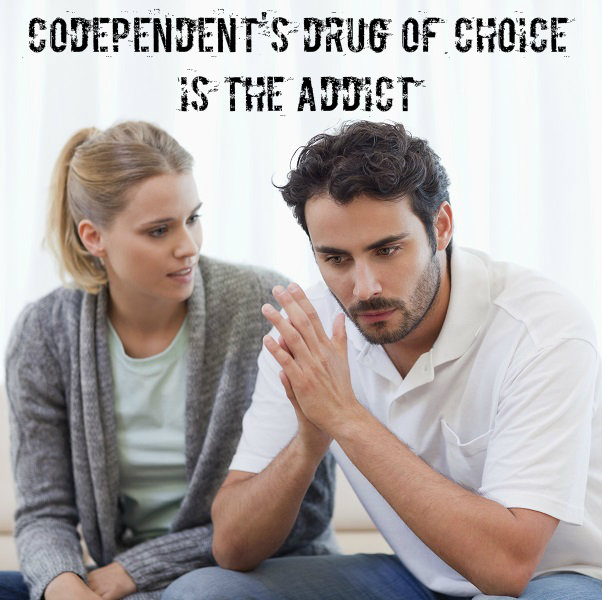 It’s not intentional, of course. If you’re involved with an addict, you probably believe with all your heart that once he or she gets sober, everything will be fine.
It’s not intentional, of course. If you’re involved with an addict, you probably believe with all your heart that once he or she gets sober, everything will be fine.
You believe the root of all of your problems is the addiction, and if the addict would only stop abusing drugs, life could go back to normal. So you keep trying to fix him.
It’s not that simple. Even if the addict gets sober, you will continue to relate to each other in unhealthy ways. In particular, you will probably continue to try to control or obsess about the addict even when he isn’t revolving his life around drugs.
Involved With One Troubled Person After Another
Many codependents find that even if they end a relationship with one addict, they immediately get involved with another one. If you have codependent tendencies, you may wonder why you seem to get involved with one addict or troubled person after another. You seem to be perpetually drawn to people who are emotionally unavailable. For one thing, thinking about them and their problems allows you to avoid thinking about your own.
Sooner or later, every codependent has to face the fact that the real problem isn’t all about the addict.
Characteristics Of Codependents
People who have a problem with codependency share certain characteristics that offer clues to why they are drawn to troubled people. Here are some of them.
- You put the needs of others before your own – Codependents are quick to put their own needs aside so that they can be constantly available to other people. The root of this tendency is low self-esteem.
- You desperately seek solutions outside yourself – Drug addicts look for substances outside themselves to fix their problems and alter their moods. As a codependent, so do you. You look for people to revolve your life around and alter your mood.
- You tend to take on too much responsibility – This leads you to do for others many things that they should be doing for themselves. You do more than your share most of the time, and eventually you feel overwhelmed and resentful.
- You have a deep fear of abandonment – You are terrified of being alone. In your relationships, you may put up with treatment that you know is unacceptable, but you are more afraid of being abandoned than you are of being abused. Being left alone is one of the worst things you can imagine.
- You constantly try to please people and you feel unappreciated – You want people to like you so much that you’re always trying to please them. You give and give and give some more, but no one seems to notice or appreciate you. You avoid asserting your own needs or getting into any kind of conflict.
- You lose yourself in relationships – You get so wrapped up in your relationships that you can barely remember who you are. You might give up your hobbies so you can be available to your loved one, or you might even change your core beliefs. Your conversations are always about what your loved one is doing, what his interests are, and what he wants. You rarely talk about yourself or think about yourself.
Recognize You Have A Problem And Get The Help You Need…And Deserve!
Codependents put a great deal of effort and energy into other people’s lives, but have a great deal of trouble focusing on their own. They get caught up in other people’s emotions, feeling happy when others are happy and sad when others are sad.
If you are a codependent, you are probably so other-focused that you don’t even realize you have a problem. Recognizing you have a problem is the first step toward recovery. Help is available through therapy and support groups such as Alanon. If you commit to getting past codependence, you will learn to focus on yourself and your own life, and to put your energy into changing what you can—yourself.
Believe In Yourself – You Are Worth It & Always Have Been…Always
22 Dec 2014
How To Drag A Family Out Of Denial
Denial is a powerful force, not for change, but for maintaining the status quo. We tend to think of the addict as being the one in denial, but often the people around her are also heavily in denial about the problem. Denial is something that can be useful at times. It may keep us sane in the face of something terribly traumatic. Most of the time, however, denial keeps us from making positive changes.
If you have an addict in the family and everyone else denies that there is a problem, make an effort to drag them out of their inertia to help your loved one.
Denial And Addiction
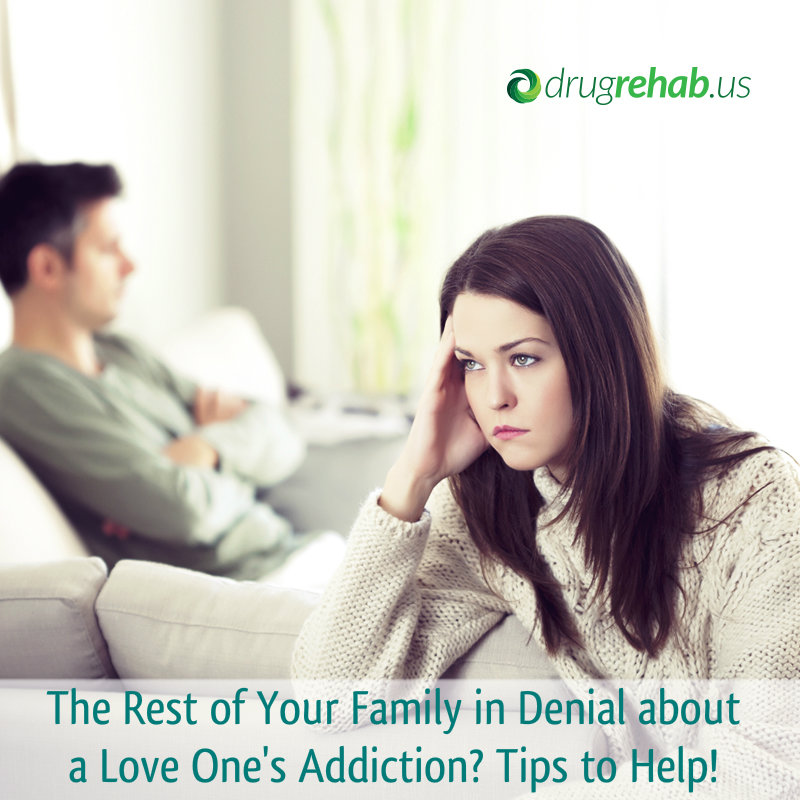 Denial is a common feature of addiction. It allows the addict to make excuses and keep using. Addicts often keep themselves in denial and can’t get help until they fully admit to having a problem.
Denial is a common feature of addiction. It allows the addict to make excuses and keep using. Addicts often keep themselves in denial and can’t get help until they fully admit to having a problem.
On the other side of the coin are the loved ones in denial. It’s understandable to see this happen. Parents, for instance, may find it impossible to admit their child is a chronic drug user or an alcoholic. Other members of the family may be in denial because conflict within the family changes the dynamic and upsets the balance.
These family members may think they are keeping everything on an even keel, but the truth is they are only enabling the addict. They are making the situation worse and allowing the addict to continue on a downward spiral. If you are the one family member not in denial, it may be very difficult to speak up. You are the one rocking the boat and everyone else reacts as if you’ve lost your mind.
How To Break Through Family Denial
If you really care about your loved one and your family, you can try to break down the wall of denial. Remember that you may not be successful. You can only do so much, and you can’t force people to change. The best you can do is to try to change their minds, convince them to see the truth and offer your love and support to the addict.
- Show that you are serious – It isn’t easy to go against what everyone else is seeing. If you have been quietly putting a bug in the ear of anyone who will listen, it’s time to step up and take a bolder stand. Hold a family meeting without the addict. Confront your family head on and show them that you mean business. This straightforward approach may jolt some of your family members out of complacency.
- State the facts – Before you hold the meeting, prepare a list of facts. Present your family with concrete examples of how your loved one displays the signs of addiction. Lead with facts rather than emotions and they may take you more seriously.
- Remain calm and be patient – Give your family time to let the facts sink in. If no one gives up his or her denial immediately, don’t get frustrated. Let it go for a few days and then come back to family members individually. You may find that some are prepared to listen to you now.
- Offer help – When all else fails and your family remains in denial, give your love and support to the addict. You can’t always change minds, but you can offer your help. Tell your addicted loved one that you are there for her when she is ready and have resources for treatment prepared.
Denial may be powerful, but so is the care and love you have for your family. Do what you can to break through the denial, but recognize when you can do no more.
Find Out If You Are An Enabler And How To Stop Enabling Now!
Your Addicted Loved One & Your Family Are Worth It – Call Us Now For Help
Including Help Setting Up An Intervention !


